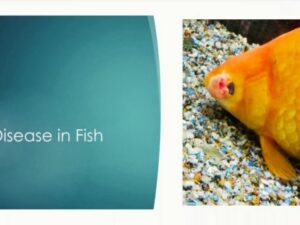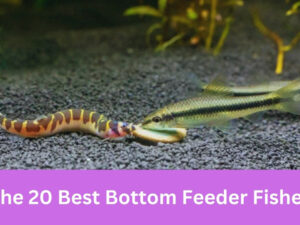Brackishwater fish can adapt to living with a higher salt content than freshwater, but not as high as that found in salt water. Much brackish water fish are native to coastal areas and can be found in estuaries and mangrove swamps.
Unfortunately, these fish are seen less often in aquariums because brackish water setups are rare. This is a shame because many brackish water species are beautiful and fascinating but don’t get the attention they deserve.
Table of Contents
- Brackish Water
- Difference Between Brackish Water And Saltwater
- Benefits Of Keeping Brackish Water Fish
- How To Make Your Aquarium Water Brackish?
- Some Common Brackish Water Fishes
- Some Common Problems With Brackish Water Fish
- Some Tips For Caring For Brackish Water Fish
- Can Salt Water fish Live In Brackish Water
- Summary
Brackish Water
The term “brackish” refers to water that is not pure freshwater or pure salt water but has a mix of the two. The salt content in brackish water can vary widely, from 1 part salt per thousand parts water (1 ppt) to almost full-strength seawater, which is about 35 ppt.
Most brackish water fish come from habitats with a salinity of 1-30 ppt. Estuaries, where rivers meet the sea, are usually in this range. The Red Sea is also considered brackish water, even though it has a higher salt content than most estuaries.
Some fish, such as the eel-like polypterus, can live in water with salinity as high as 50 ppt. But most brackish aquarium fish cannot tolerate salt levels this high and will do best in water with a salinity of 1-20 ppt.
Many believe brackish water is always murky and stagnant, but this is not the case. In nature, brackish water can be transparent or cloudy, warm or cool, still or flowing. It all depends on the location and conditions of the specific habitat.
The salinity of brackish water can also fluctuate over time. For example, rainwater can lower the salinity of an estuary, while evaporation can raise it. These changes are usually gradual and not drastic enough to affect most brackish water fish.
Check Freshwater Flounder Care Guide: Appearance, Diet, Breeding & All
Difference Between Brackish Water And Saltwater
The main difference between brackish water and salt water is the salt content. Brackish water has a lower salt content than salt water, sometimes called “semi-salt water.”
The salinity of brackish water can vary widely, from 1 part salt per thousand parts water (1 ppt) to almost full-strength seawater, which is about 35 ppt. Most brackish water fish come from habitats with a salinity of 1-30 ppt.
In comparison, the salinity of salt water is usually around 35 ppt. This is the average salinity of the ocean, but it can vary slightly depending on the location. For example, the Red Sea has a salinity of around 40 ppt.
In comparison, the salinity of salt water is usually around 35 ppt. This is the average salinity of the ocean, but it can vary slightly depending on the location. For example, the Red Sea has a salinity of around 40 ppt.
Also, check Water Sprite Plant: Best Care Guide Explained in Details
Benefits Of Keeping Brackish Water Fish
There are many benefits to keeping brackish water fish. First, they are often fantastic and exciting to look at. Much brackish water fish have unique patterns and colors that you won’t find in fresh or saltwater fish.
Another benefit of keeping brackish water fish is that they are often easier to care for than other types of fish. This is because they are more tolerant of water quality fluctuations and can often withstand less-than-ideal conditions.
Some brackish water fish, such as the knight goby, is also known for their friendly personalities. They are not as shy as other fish and often curiously approach humans. This makes them an excellent choice for people who want to keep fish as pets.
Also, check 9 Best Types of Freshwater Aquarium Catfish
How To Make Your Aquarium Water Brackish?
To make your aquarium water brackish, you must add salt. The amount of salt you add will depend on the type of fish you are keeping and the salinity of their natural habitat.
For example, if you are keeping mollies from brackish water habitats, you will need to add 2-3 tablespoons of salt per gallon of water.
If you are keeping fish from saltwater habitats, such as clownfish, you must add 5-6 tablespoons of salt per gallon of water.
Once you have added the salt, you must let the aquarium water sit for 24 hours before adding any fish. This will allow the salt to dissolve and the water to reach the correct salinity.
Some Common Brackish Water Fishes
Some popular Brackish fishes are as follows:
- Mollies
- Guppies
- Tetras
- Barbs
- Gouramis
- Archerfish
- Banded Green Chromide
- Violet Dragon Goby
- Green Spot Puffer
- Mudskipper
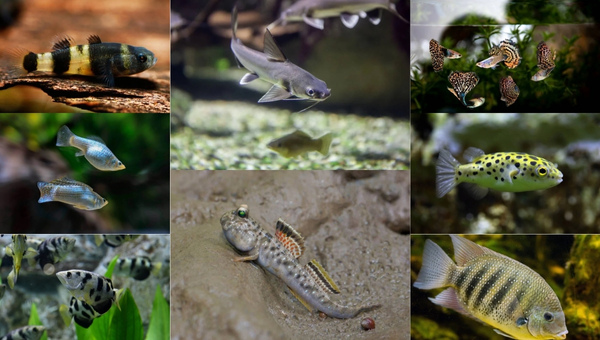
Mollies
Mollies are one of the most popular brackish water fish because they are very hardy and can tolerate many water conditions. They are also known for their beautiful colors and patterns.
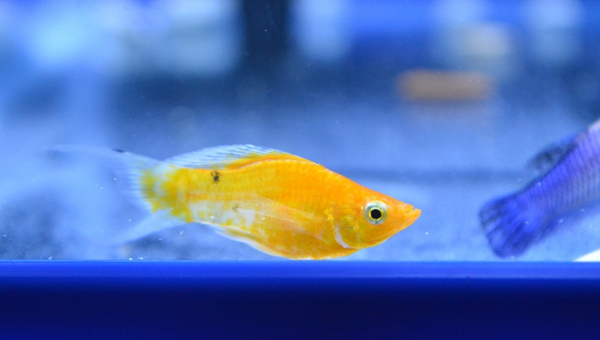
It is best to keep them in the same conditions they were born in; a change in salinity could lower their chances of survival. This small live-bearing species is elementary to care for, so a large group is a common sight in beginner aquariums.
You may also check 30 Best Cold Water Fish For Your Aquarium
Guppies
Guppies are another popular choice for brackish water aquariums. They are straightforward to care for and can tolerate many water conditions. They are also known for their bright colors and patterns.
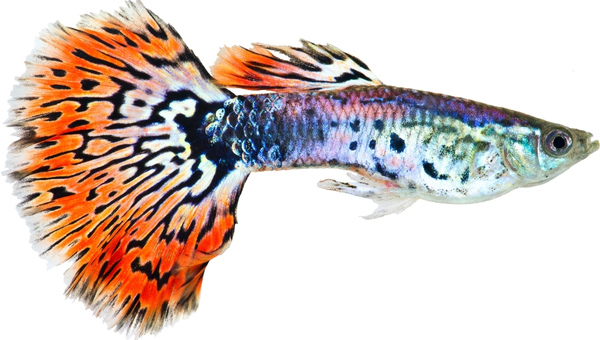
However, it is essential to note that guppies are livebearers. This means they will give birth to live young instead of laying eggs. So, if you are not planning on breeding them, it is best to keep them in a tank with other fish that are the same size or larger.
Also, check Otocinclus Catfish Care Guide: Appearance, Lifespan, Food & Diet, Breeding & All
Tetras
Tetras are a popular choice for brackish water aquariums because they are peaceful fish that get along well with other fish. They are also known for their bright colors and patterns. Tetras are best kept in groups of 5 or more.
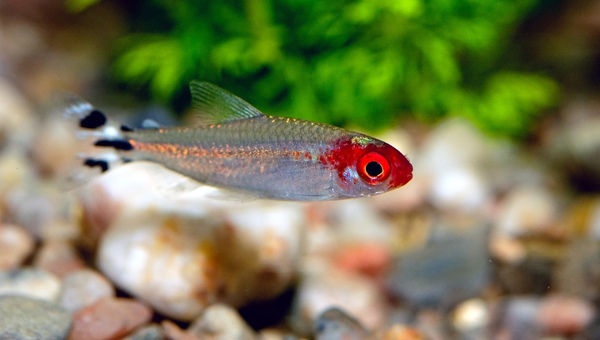
Barbs
Barbs are a popular choice for brackish water aquariums because they are very active fish that is a lot of fun to watch. They are also known for their bright colors and patterns. Barbs are best kept in groups of 5 or more.
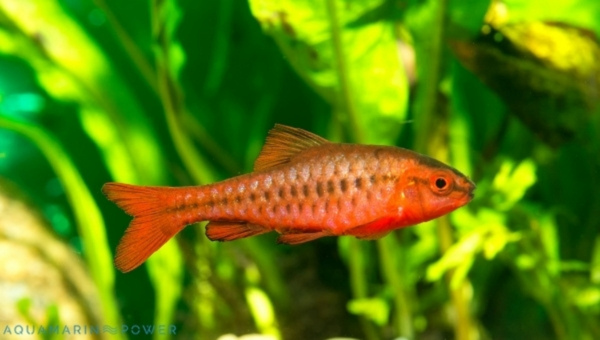
You may also check Butterfly Betta Care Guide: Appearance, food & Diet, Breeding & All
Gouramis
Gouramis are a popular choice for brackish water aquariums because they are very peaceful fish that get along well with other fish. They are also known for their beautiful colors and patterns. Gouramis are best kept in pairs or groups of 4 or more.
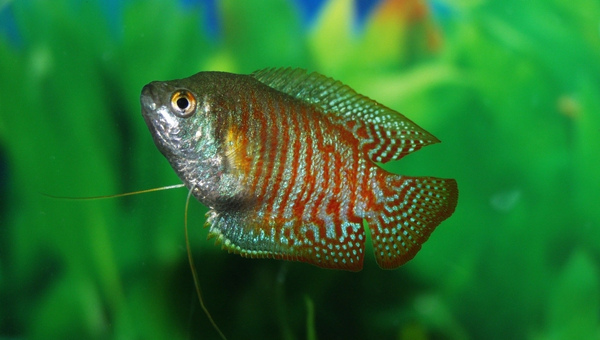
Archerfish
Archerfish are a popular choice for brackish water aquariums because they are very active fish that is a lot of fun to watch. They are also known for their ability to shoot water out of their mouths to catch prey. Archerfish are best kept in pairs or groups of 4 or more.
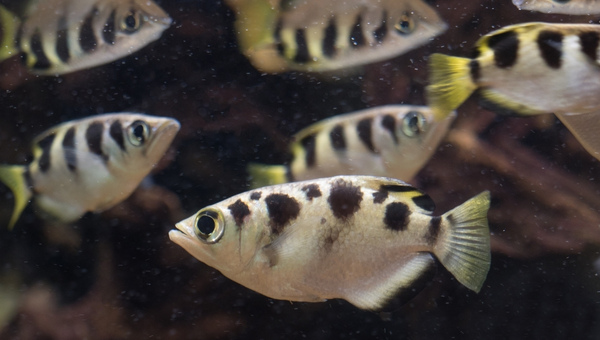
Check Panther Grouper Care Guide: Appearance, Lifespan & Coloration & Breeding
Banded Green Chromide
The banded green chromide is a popular choice for brackish water aquariums because they are very peaceful fish that get along well with other fish. They are also known for their beautiful colors and patterns. Banded green chromides are best kept in pairs or groups of 4 or more.
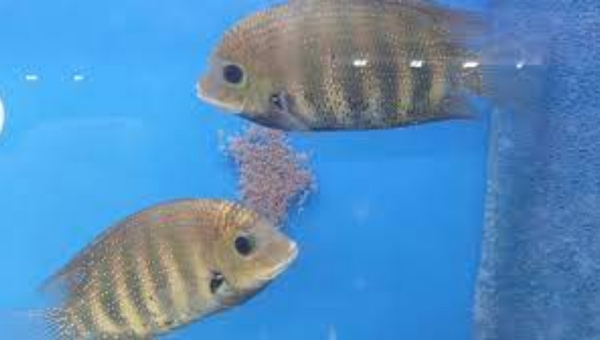
Violet Dragon Goby
The violet dragon goby is a popular choice for brackish water aquariums because they are very active fish that is a lot of fun to watch. They are also known for their beautiful colors and patterns. Violet dragon gobies are best kept in pairs or groups of 4 or more.
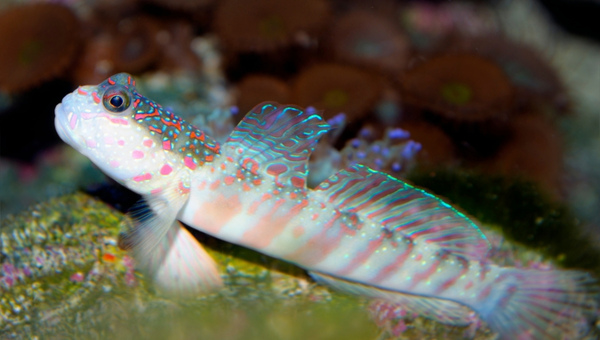
You may also check How To Cure Fish Fungus (Aquarium Fish) Ultimate Treatment & Medication
Green Spot Pufferfish
Pufferfish are a popular choice for brackish water aquariums because they are very active fish that is a lot of fun to watch. They are also known for their ability to inflate their bodies when threatened. Pufferfish are best kept in pairs or groups of 4 or more.
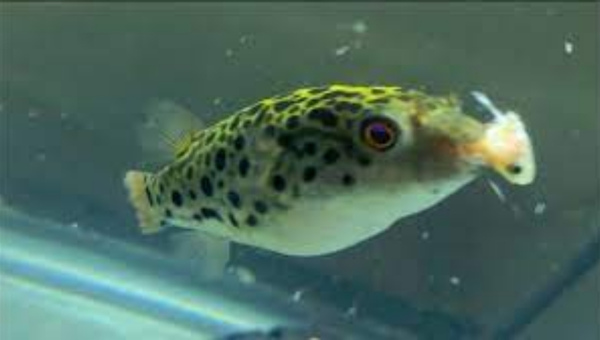
Mudskipper
Mudskippers are a popular choice for brackish water aquariums because they are very active fish that is a lot of fun to watch. They are also known for their ability to walk on land. They enjoy a variety of meaty foods like bloodworms, Mysis shrimp, and clams.
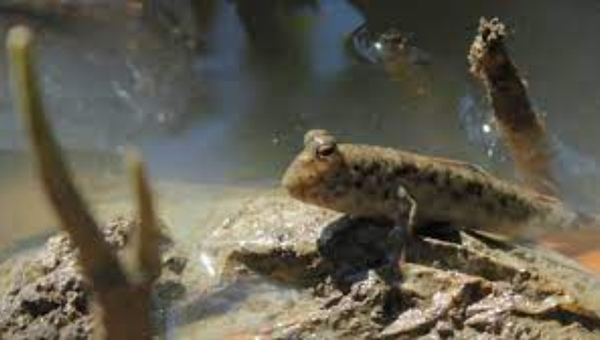
They tend to beg for food, so overfeeding can be a problem. They are very entertaining to watch. They display many behaviors, such as burrowing and, of course, walking.
Also, check Cardinal Sulawesi Shrimp 101: Care Guide & Breeding Guide
Some Common Problems With Brackish Water Fish
The most common problem with brackish water fish is that they are susceptible to changes in water quality. This means that you will need to be very careful about maintaining a stable environment for your fish.
Another common problem with brackish water fish is that they are often timid and can be easily stressed. This means you must provide them with many hiding places and keep the aquarium environment as quiet as possible.
Also, check Ultimate Dragon Goby 101: Care, Appearance, Food, Habitat & All
Some Tips For Caring For Brackish Water Fish
Some tips for caring for brackish water fish include:
- Maintain a stable environment for your fish by regularly testing the water quality and ensuring the temperature is consistent.
- Provide your fish with plenty of hiding places to reduce stress.
- Feed your fish a variety of foods to ensure that they are getting all the nutrients they need.
- Be careful not to overclean the aquarium, as this can disturb the ecosystem’s delicate balance.
Can Salt Water fish Live In Brackish Water
While some saltwater fish can live in brackish water, putting them in a brackish aquarium is not recommended. This is because they are not used to the lower levels of salt and may be unable to adapt.
Additionally, the higher salt levels in brackish water can harm saltwater fish. If you want to keep saltwater fish in a brackish water aquarium, it is best to consult a professional first.
Some fish mate in brackish waters, leaving the young to grow up there. They would then move to saltwater as they mature into adults.
Also, check Ultimate Dragon Goby 101: Care, Appearance, Food, Habitat & All
Summary
Brackish water fish are popular in aquariums because they are active and fun to watch. They can be sensitive to changes in water quality, so it is essential to maintain a stable environment.
They also require plenty of hiding places and a variety of foods. Some saltwater fish can live in brackish water, but it is not recommended. Professional help should be sought first if this is something you are considering.
Some fish mate in brackish water, leaving the young to grow up there. They would then move to saltwater as they mature into adults.
The brackish world should be explored more in captivity. It could be an exciting new venture as you care for some of the world’s most captivating fish.

